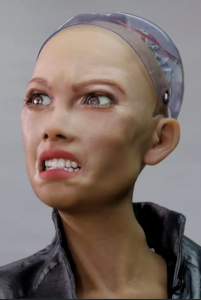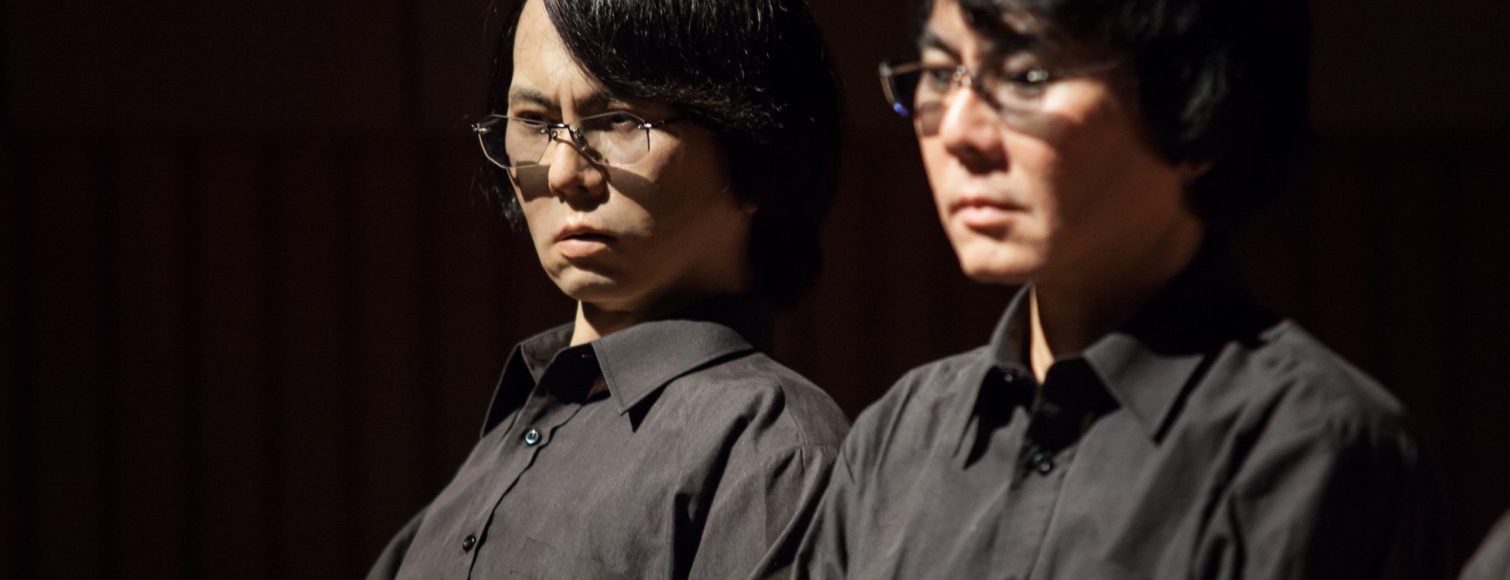Limited capacity – please register for this event on EventBrite.
What can robots teach us about ourselves?
 Fifty years ago, the Japanese roboticist Masahiro Mori coined the term “Uncanny Valley”. This term described his observation: as robots appear more and more humanlike, they suddenly give us the creeps.
Fifty years ago, the Japanese roboticist Masahiro Mori coined the term “Uncanny Valley”. This term described his observation: as robots appear more and more humanlike, they suddenly give us the creeps.
Why do humanoid robots cause these reflexes of disgust and anxiety? Do we merely experience an emotional fear, or do we maybe even feel threatened in our very humanity? What do we do with these reflexes and how do they (potentially) shape our interactions with robots? Can we avoid the uncanny valley? These are important questions to answer to streamline future robotics advancements. During this event we want to approach these questions from different perspectives: engineering, ethics, and philosophy.
Speakers
Dr.ir. Joost de Winter (associate professor). In his research, Dr.ir. De Winter focusses on the experimental quantification of interaction between humans and robots. Joost de winter will provide a data driven perspective on the uncanny valley.
In 1970, Masahiro Mori, a Japanese robotics professor, wrote an essay on how people would respond to robots that have an almost lifelike appearance. In his essay, he forwarded the hypothesis that people would show higher affinity towards a robot when the robot becomes more human-like, but show a strong repulsive response if the robot is nearly realistic. This hypothesis, also known as the uncanny valley, may have large implications for humanoid robot design. However, is the uncanny valley hypothesis true, and does it replicate after more than 50 years? And how can the feeling of eeriness be explained? In this talk, I will review what is currently known about the uncanny valley.
Dr.ir. Martijntje Smits (Philosopher of Science & Technology). Senior researcher, lecturer, author and speaker. Main subject: Social Controversies on new science & technology. Martijntje will provide a philosophical perspective on the subject.
Dr. Maria Luce Lupetti is Assistant Professor in Design at the faculty of Industrial Design Engineering. Her current research, at the intersection of design, ethics, AI and robotics, is focused on understanding and designing responsible human-technology relations.
In my brief introduction, I will provide an overview of current HRI design work exploring the space of abstract embodiments and challenging humanlike stereotypes. There is a growing trend to design robots as abstract entities, up to the use of pure geometric forms. This is more and more emerging as a way to challenge human-like robot stereotypes. Researchers are showing that even abstract looking robots can effectively engage people. Anthropomorphism, which helps us tune in with robots can emerge even when a robot embodiment does not present any humanlike feature. Abstract appearances, however, are also not free from controversies. It is still unclear if abstraction can liberate robots from our human stereotypes, and if in search of formal ‘purity’ we lose the possibility of building complex social expressivity.
Think and Drink with Asimov!
In this quarterly event, Asimov and Studium Generale are teaming up to engage with ethical conundrums in an informal setting. We invite researchers, philosophers and ethicists to share their views on an ethical issue in robotics and invite you to join us over a pint with your insights and inquiry. The first drink is on us!
Robotics students, take note! You can include this event in your portfolio.


